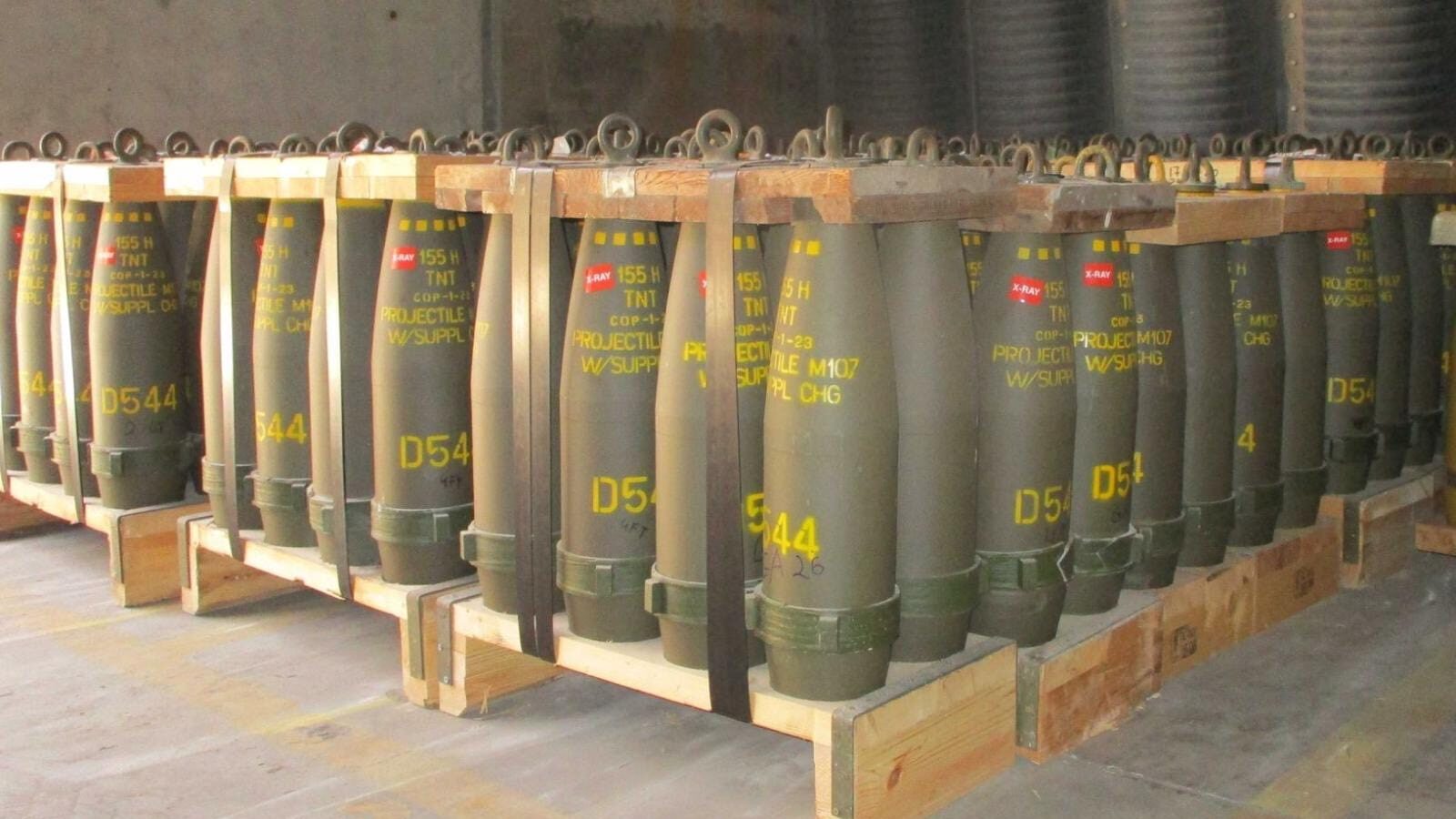
JERUSALEM — Israel’s Ministry of Defense is procuring $60 million-worth of 155mm artillery shells, in a deal meant to shore up Jerusalem’s access to the shells that have proved crucial to the fight in Ukraine.
The deal with Israel’s Elbit Systems, announced July 31, comes months after the US reportedly removed some 300,000 155mm shells from stocks in Israel to give to Kyiv — stocks that are owned by the US but positioned in Israel and can be accessed by the Israeli military in case of emergencies.
According to a statement from the ministry, the “Directorate of Production and Procurement (DOPP) signed a new agreement with Elbit Systems to procure tens of thousands of 155mm artillery shells for the use of the Israel Defense Forces’ Artillery Corps. Director General of the Israel Ministry of Defense, Maj. Gen. (Res.) Eyal Zamir, approved the agreement valued at over $60 million.” The delivery will take place next year.
“The artillery shell production line is essential, and the Ministry of Defense has made substantial investments in it for many years. This agreement with Elbit Systems will bolster the IDF’s capabilities and preparedness for diverse combat scenarios,” Director of the Ministry of Defense DOPP Zeev Landau said.
RELATED: Israel wants US to bolster its weapons stockpile in Israel, sources say
Ukraine has been plowing through stores of the 155mm, firing thousands of shells a day. The conflict so far, including a stalled offensive, has put a spotlight on the large amount of munitions being used, affecting global stockpiles. Like Israel, the US has made serious investments in ramping up 155mm ammo production, as it has shipped some 1.5 million of the shells to Ukraine already.
In January The New York Times reported that the US decided to pull from 155mm stocks in Israel, where that ammo, along with a host of others, is pre-positioned for American use in the Middle East in what’s called a War Reserve Stocks for Allies-Israel facility. Though primarily for American use, the stockpile is also a “strategic boon” to Israel since the Israeli government can legally dip into the stocks themselves in times of crisis if the US allows, according to a US congressional report. (Israel has requested and received permission twice since 1989, the 2023 report says.)
The Times reported Israel was initially wary of the stockpile move, mostly out of fear it could damage Jerusalem’s relations with Moscow. Israel has remained mostly neutral in the Ukraine conflict; as Breaking Defense has previously reported, Israel relies on Russia’s unofficial acquiescence to operate against militant groups in Syria.
Back home, Israel has continued to innovate with its own 155mm shells. In 2016 manufacturer IMI announced a new shell that was supposed to reduce logistical arrangements for artillery battalions, essentially having individual shells do more than their predecessors. Elbit acquired IMI in 2018, and Elbit since has been pitching its 155mm systems globally, including with the ATMOS artillery system, which it showcased in the US in 2020. The Israeli military is also acquiring the ATMOS to replace the M109 howitzers. Israel is also upgrading its own artillery with a new self-propelled gun called Roem.
According to an Elbit presentation on its land ammunition portfolio, “With the acquisition of IMI, Elbit Systems offers unmatched experience and a high-performance array of combat-proven, advanced artillery ammunition solutions to meet the range of military requirements worldwide, for troops in the modern battlefield.”
The company highlights its advanced artillery as minimizing the logistical footprint, and providing ammunition that is more effective than in the past. The company did not comment on when the Ministry of Defense last acquired 155mm from Elbit or IMI prior to its acquisition. The Ministry of Defense also did not reply to Breaking Defense’s request for comment as of press time.

